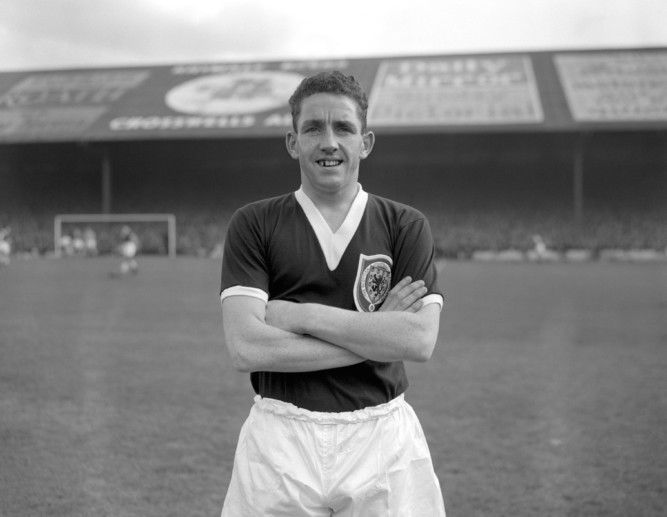
It was in a hotel room in the early hours of the morning that I became fully aware of the reverence in which Dave Mackay was held in football.
Some 30 years ago, we were on a European excursion with Aberdeen. The card school had finished, and strong drink was still being taken, when debate began over the best-ever Scotland XI.
Alex Ferguson, then the Dons manager and yet to be knighted, was asked for his opinion.
“Well, first in is Dave Mackay, brackets, captain.”
That’s some compliment, and over 30 years later, has been backed up in the wake of Mackay’s passing last Monday.
He was a natural leader as a player and manager.
Not many recover from breaking the same leg twice to play a further nine years at the very highest level for club and country. But then not many players had Mackay’s mentality, outlook and ambition.
He was blessed with that rare combination of being extremely tough and extremely skilful. Yet in a career that spanned 19 years and 695 games, he was never once sent off.
For a player who relished a tackle, Mackay couldn’t boast that record today when you only have to make contact to get a red card.
He won honours galore with Hearts, Tottenham and Derby County, plus 22 caps for Scotland, before managing unfashionable Derby to become English champions.
Yet if Mackay had had his way, he would never have left Hearts. He’d just captained them to the Scottish title, having previously helped deliver two League Cups and a Scottish Cup in a five-season halcyon spell.
Hearts were top of the League, with money in the bank, but accepted Spurs’ bid of £32,000 in March, 1959.
“I felt bereaved and was uncomfortable with the haste it happened,” Mackay admitted afterwards. “I never contemplated playing for anyone except Hearts. Yet in the end, I couldn’t escape the conclusion they wanted to sell me.”
Spurs couldn’t top Mackay’s £20-a-week, due to maximum-wage restrictions. They were also struggling in the English First Division.
Having been appointed Scotland captain by Matt Busby after only two internationals, Mackay said he’d have been more comfortable signing for Busby at Manchester United if he had to leave Hearts.
Busby’s regard for Mackay was so great he ordered the new Scotland skipper to take any penalties and even take over in goal if the keeper had to come off.
Instead, Mackay left to inspire Spurs to become the first English team to win the Double in the 20th Century.
The best all-round Scottish player of all time? Sir Alex Ferguson certainly thinks so.

Enjoy the convenience of having The Sunday Post delivered as a digital ePaper straight to your smartphone, tablet or computer.
Subscribe for only £5.49 a month and enjoy all the benefits of the printed paper as a digital replica.
Subscribe